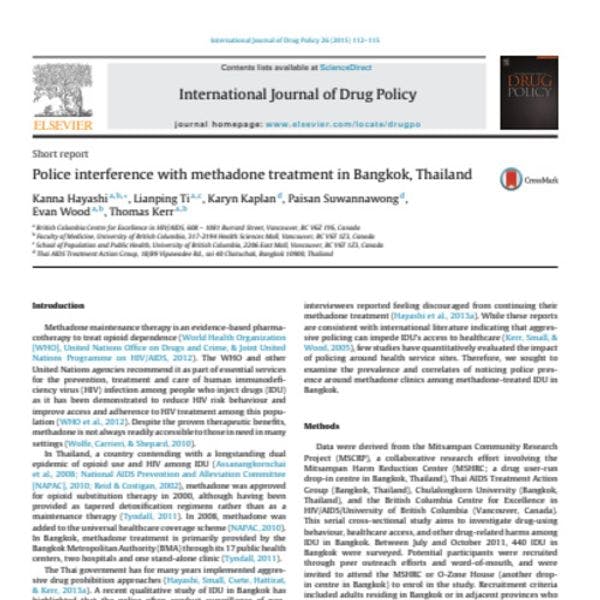Police interference with methadone treatment in Bangkok, Thailand
In Thailand, a country contending with a longstanding dual epidemic of opioid use and HIV among IDUs, methadone was approved for opioid substitution therapy in 2000, although having been provided as tapered detoxification regimens rather than as a maintenance therapy. In 2008, methadone was added to the universal healthcare coverage scheme. In Bangkok, methadone treatment is primarily provided by the BangkokMetropolitanAuthority (BMA) throughits 17 public health centers, two hospitals and one stand-alone clinic.
The Thai government has for many years implemented aggressive drug prohibition approaches. A recent qualitative study of IDU in Bangkok has highlighted that the police often conduct surveillance of people accessing methadone clinics; harass methadone atients with extortion and urine drug testing; and arrest patients who test positive for an illicit drug. In response, some interviewees reported feeling discouraged from continuing their methadone treatment (Hayashi et al., 2013a). While these reports are consistent with international literature indicating that aggressive policing can impede IDU’s access to healthcare, few studies have quantitatively evaluated the impact of policing around health service sites. Therefore, we sought to examine the prevalence and correlates of noticing police presence around methadone clinics among methadone-treated IDU in Bangkok.
The findings suggest a need to address police interference with methadone treatment.
Keep up-to-date with drug policy developments by subscribing to the IDPC Monthly Alert.
Downloads
Regions
Related Profiles
- International Journal of Drug Policy
